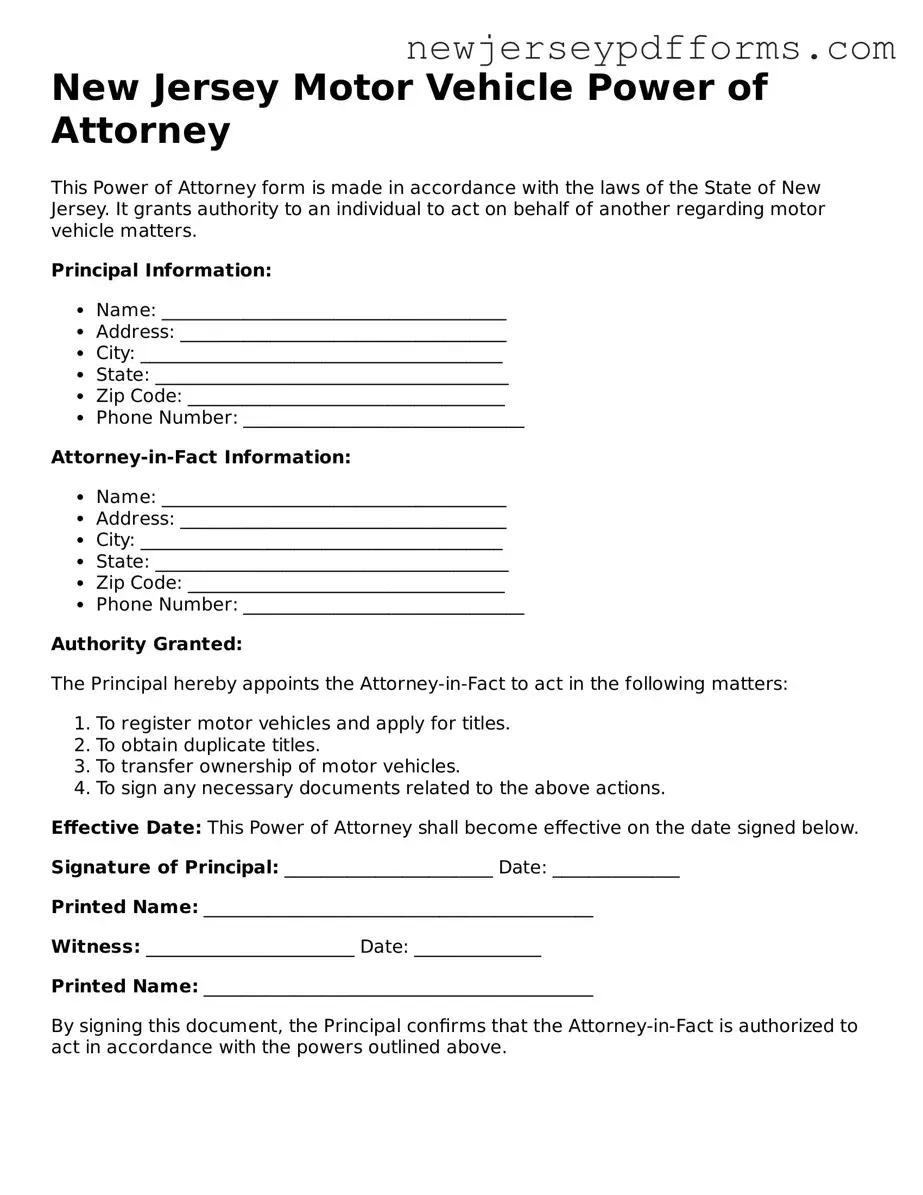What is a New Jersey Motor Vehicle Power of Attorney form?
The New Jersey Motor Vehicle Power of Attorney form is a legal document that allows one person to designate another person to act on their behalf in matters related to motor vehicle transactions. This can include tasks such as registering a vehicle, transferring title, or obtaining a duplicate title.
Who can be designated as an attorney-in-fact?
Any individual who is at least 18 years old and is capable of understanding the responsibilities associated with the role can be designated as an attorney-in-fact. This person does not need to be a legal professional but should be someone the principal trusts to handle their motor vehicle matters.
How do I complete the form?
To complete the form, provide the required information, including the names and addresses of both the principal and the attorney-in-fact. Specify the powers granted and sign the document. It is advisable to have the form notarized to enhance its validity, although notarization is not always required.
Is the form valid in other states?
The New Jersey Motor Vehicle Power of Attorney form is primarily intended for use within New Jersey. While some other states may recognize the document, it is important to check the specific requirements of the state where the vehicle transaction will occur.
Can I revoke a Power of Attorney once it is established?
Yes, a Power of Attorney can be revoked at any time as long as the principal is competent. To revoke it, the principal should complete a revocation form and notify the attorney-in-fact and any relevant institutions, such as the New Jersey Motor Vehicle Commission.
What happens if the principal becomes incapacitated?
If the principal becomes incapacitated, the Power of Attorney typically remains in effect unless it is a "springing" Power of Attorney, which only becomes effective upon incapacitation. The attorney-in-fact's authority may continue until the principal's death or until the document is revoked.
Do I need a witness to sign the form?
A witness is not required for the New Jersey Motor Vehicle Power of Attorney form. However, having a witness or notarizing the document can provide additional assurance of its validity and may be beneficial in case of disputes.
Can I use the form for multiple vehicles?
Yes, the form can be used to grant authority for multiple vehicles. It is important to clearly list each vehicle and its identifying information, such as the Vehicle Identification Number (VIN), to avoid any confusion regarding which vehicles are covered by the Power of Attorney.
Where do I submit the completed form?
The completed form should be submitted to the New Jersey Motor Vehicle Commission when conducting the specific transaction for which the Power of Attorney was granted. It is advisable to keep a copy of the form for personal records.
Is there a fee associated with the Power of Attorney form?
There is no fee for completing the Power of Attorney form itself. However, there may be fees associated with the motor vehicle transactions that the attorney-in-fact will carry out on behalf of the principal, such as registration or title transfer fees.

